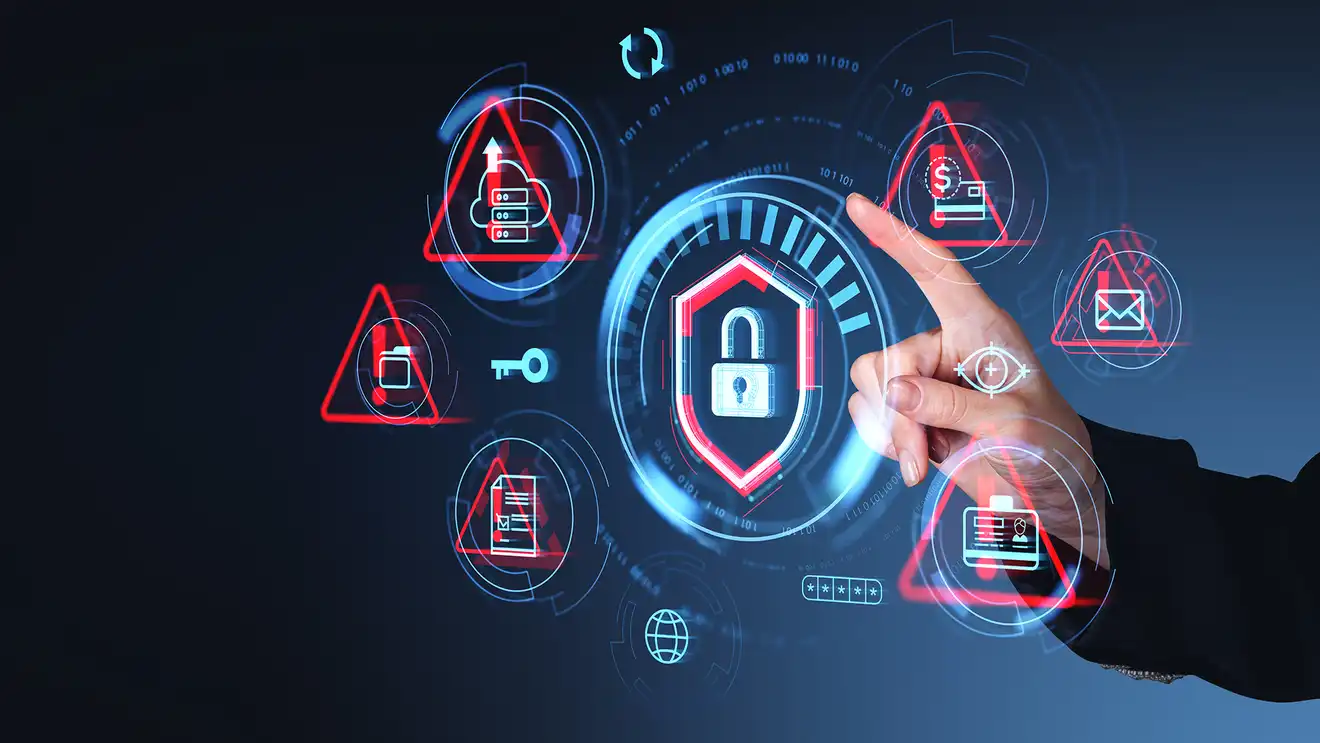How to Become a Cybersecurity Analyst

Organizations across the world are constantly under some kind of digital attack. Cyber threats evolve at rapid speed, from sophisticated ransomware to subtle social engineering scams. Naturally, this creates a critical need for skilled cybersecurity professionals who can protect organizations of all sizes and types. If you're drawn to the challenge of safeguarding sensitive data and building a rewarding career in a high-demand field, then you’re in the right place.
What does a cybersecurity analyst do?
Cybersecurity analysts are the first line of defense against cyberattacks. They play a crucial role in protecting an organization's valuable assets by:
-
Monitoring networks for suspicious activity: Scanning for threats like malware, intrusions, and data breaches using specialized tools.
-
Conducting vulnerability assessments: Identifying and mitigating potential weaknesses in an organization's security posture.
-
Implementing and maintaining security controls: Deploying and managing firewalls, intrusion detection systems, and other security measures.
-
Responding to security incidents: Investigating and resolving cyberattacks effectively and efficiently.
-
Educating employees: Raising awareness about cybersecurity threats and best practices to prevent social engineering attacks.
This dynamic role demands a combination of technical expertise, analytical skills, and a proactive approach to problem-solving.
How much do cybersecurity analysts make?
Cybersecurity analysts are highly sought after, and their compensation reflects the critical nature of their work. According to Salary.com, the average annual salary for cybersecurity analysts in the U.S. starts at around $105,000 with experienced professionals earning significantly more.
Several factors can influence your earning potential in this role, like:
-
Location: Analysts in major tech hubs and metropolitan areas typically command higher salaries, although they often face higher costs of living.
-
Certifications: Obtaining industry-recognized certifications can significantly boost earning potential and help keep your knowledge fresh.
-
Experience: Hands-on experience in cybersecurity, whether through internships, personal projects, or real-world work experience, is highly valued by employers.
Can you work as a cybersecurity analyst remotely?
Remote work has risen significantly in recent years, and the tech job sector is not immune to that. Many cybersecurity analyst positions can now be performed remotely, offering flexibility and work-life balance for professionals.
Remote analysts typically:
-
Monitor systems remotely: Utilize cloud-based security platforms and tools to track network activity.
-
Collaborate virtually: Communicate and coordinate with team members through video conferencing, instant messaging, and project management tools.
-
Maintain connectivity: Stay connected to security operations centers (SOCs) and incident response teams via virtual means.
While remote work is increasingly common, some roles may require on-site presence, especially those involving highly sensitive data or physical security.
Essential Skills for Success
To excel as a cybersecurity analyst, you'll need a blend of technical and soft skills:
Technical skills:
-
Networking fundamentals: Strong understanding of network protocols, topologies, and security devices like firewalls and routers.
-
Threat detection tools: Proficiency in using security information and event management (SIEM) systems, intrusion detection systems (IDS), and other threat intelligence tools.
-
Programming basics: Familiarity with scripting languages like Python or PowerShell can be a significant advantage.
-
Incident response: Ability to quickly analyze security incidents, contain threats, and implement mitigation measures.
Soft skills:
-
Analytical and problem-solving skills: Ability to analyze complex data, identify patterns, and develop effective solutions to security challenges.
-
Attention to detail: Meticulous observation and the ability to spot subtle anomalies in system behavior.
-
Communication and collaboration: Excellent written and verbal communication skills to effectively convey technical information to both technical and non-technical audiences.
-
Critical thinking: The ability to think outside the box, anticipate threats, and adapt to evolving security landscapes."
Top tips for your cybersecurity journey
Breaking into the cybersecurity field requires dedication and a strategic approach. Here are some key tips to help you succeed:
- Build a strong foundation with certifications.
Focus on industry-recognized credentials: Start with foundational certifications like CompTIA Security+ and expand your knowledge with more advanced certifications like CySA+ and PenTest+.
-
Gain practical experience: Utilizing sandbox labs challenges you to apply your theoretical knowledge and develop hands-on skills in a safe environment. Sandbox labs go beyond simulation, without real-life risk.
-
Leverage hands-on experience
-
Seek out apprenticeships: Gain real-world experience by becoming an apprentice with cybersecurity companies or organizations.
-
Contribute to open-source projects: Contribute to open-source security projects to enhance your skills and build your portfolio.
-
Participate in Capture the Flag (CTF) events: Test your skills and learn from others in a competitive and challenging environment.
-
Build your professional network:
-
Attend industry events and conferences: Network with other cybersecurity professionals, learn about the latest trends, and explore potential career opportunities. If you can’t afford to attend, volunteering is a way to attend cons and break the ice at the same time.
-
Engage in online communities: Participate in cybersecurity forums, join LinkedIn groups, and connect with industry experts.
-
Mentorship: Seek guidance from experienced professionals who can offer valuable advice and support.
-
Craft a compelling resume and interview preparation:
-
Highlight your skills and experience: Tailor your resume to emphasize your technical skills, certifications, and any relevant projects or work experience.
-
Practice your interview skills: Prepare for common interview questions, practice your responses, and conduct mock interviews to build your confidence.
Bring it all together
ACI Learning’s Tech Academy provides comprehensive cybersecurity training programs that equip you with the knowledge and skills you need to succeed. Our training programs teach you everything you need to know to earn certifications relevant to the role you’re interested in and include an exam voucher to help you get started. Our expert instructors will ensure you’re ready to pass that exam, along with our sandbox labs to help you get all the hands-on experience you need. When you’re ready to become a cybersecurity analyst, our career services team will give you high-level support to accelerate your job hunt.
Ready to embark on your cybersecurity journey? Explore our Information Security Analyst Program today and take the first step towards a rewarding and impactful career.



